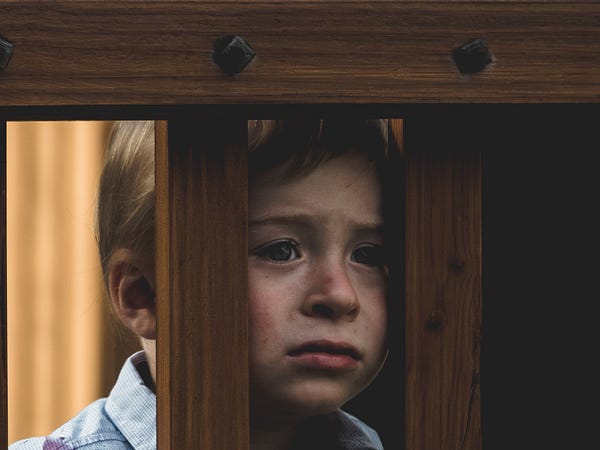Last updated on October 22nd, 2024 at 10:17 am
- What is Narcissistic Parenting?
- The Deep Pain of Growing Up with a Narcissist
- How Narcissistic Parent Impacts Young Adult Mental Health
- Gaslighting: Making You Doubt Reality
- Emotional Blackmail: Using Fear, Obligation, and Guilt
- Love-Bombing and Intermittent Reinforcement
- The Silent Treatment: Withdrawal of Love
- Triangulation: Turning Family Members Against Each Other
- The Long-Term Effects on Mental Health
- Depression: The Weight of Never Being “Good Enough”
- Anxiety: Always Waiting for the Other Shoe to Drop
- Complex PTSD: Living with Ongoing Trauma
- Codependency: Losing Yourself in Relationships
- Eating Disorders and Self-Harm: Trying to Gain Control
- Substance Abuse: Numbing the Pain
- Identity Issues: Not Knowing Who You Are
- Physical Health Problems: The Body Keeps Score
- Breaking Free: Healing from Narcissistic Abuse
- 1. Recognize the Abuse
- 2. Allow Yourself to Feel
- 3. Set Boundaries
- 4. Build a Support Network
- 5. Practice Self-Care
- 6. Challenge Negative Self-Talk
- 7. Explore Your Identity
- 8. Work on Relationships
- 9. Consider Therapy
- 10. Educate Yourself
- 11. Practice Mindfulness
- 12. Reclaim Your Power
- 13. Break the Cycle
- 14. Grieve the Relationship You Never Had
- 15. Develop Self-Trust
- 16. Address Trauma Bonding
- 17. Recognize Your Strength
- 18. Handle Guilt Trips
- 19. Manage Emotional Flashbacks
- 20. Build Emotional Intelligence
- 21. Create New Traditions
- 22. Practice Forgiveness (If You Choose)
- 23. Celebrate Your Progress
- Behavioral Therapy for Adult Children of Narcissists
- Impact of Narcissistic Traits on Children’s Self-Esteem
- Parental Influence on Socio-Emotional Development
- Physical Abuse and Emotional Dysregulation
- Development of Narcissism and Parental Overvaluation
- The Role of Behavioral Therapy in Addressing Narcissistic Traits
- Attention-Seeking and Unpleasant Behavior as a Result of Parental Narcissism
- Emotional Stress and Anxiety Traits in Children of Narcissists
- Network Characteristics and Adaptive Behaviors in Coping
- The Origins of Narcissism in the Family Environment
- Family Therapy as a Tool for Healing
- The Effects of Parental Overvaluation on Esteem in Children
- Coping Mechanisms: Avoidance Behavior and First-Order Adaption
- Fragile Self-Esteem and Chronic Self-Doubt
- Institutional Affiliations and Parental Narcissism
- Paternal Parenting Styles and Level II Adaptation
- Attention-Seeking Behavior and Development of Narcissism
- Child Self-Report and Socio-Emotional Challenges
- Aggression Against Children and Chronic Stress
- Social Network Models and Incoming Connections
- Conscious Brain and Emotional Regulation
- Chronic Stress and Emotional Dysregulation
- Physical Abuse and Esteem in Children
- Adaptive Networks and Emotional Isolation
- Origins of Narcissism and Child Development Over Time
- Conclusion: Your Healing Journey
- Frequently Asked Questions
- How Does Having A Narcissistic Parent Impact The Mental Health Of Young Adults?
- What Are The Common Traits Of Children Raised By Narcissistic Parents?
- How Does A Narcissistic Mother Affect Her Child’s Development?
- What Impact Does A Narcissistic Father Have On Young Adults?
- How Do Children Of Narcissistic Parents Develop People-Pleasing Behavior?
- How Does Emotional Dysregulation Manifest In Adult Children Of Narcissists?
- How Does Parental Narcissism Influence Children’s Socio-Emotional Development?
- What Are The Effects Of Physical Abuse By A Narcissistic Parent On Young Adults?
- How Does Chronic Self-Doubt Develop In Children Of Narcissistic Parents?
- How Can Behavioral Therapy Help Adult Children Of Narcissistic Parents?
- How Does Narcissistic Behavior Affect Children’s Self-Esteem?
- How Does A Narcissistic Parent’s Attention-Seeking Behavior Impact A Child’s Development?
- How Does Parental Overvaluation Lead To Narcissistic Traits In Children?
- How Do Narcissistic Parents Affect The Brain Development Of Their Children?
- How Does Paternal Parenting Style Influence The Development Of Narcissism In Children?
- How Does Growing Up With A Narcissistic Parent Lead To Anxiety In Adulthood?
- How Can Family Therapy Help Children Of Narcissistic Parents?
- How Does Parental Narcissism Affect The Adjustment Of Children Over Time?
- How Does Parental Narcissism Affect A Child’s Ability To Form Relationships?
- How Does Narcissistic Behavior Affect A Child’s Perception Of Their Own Emotions?
Imagine growing up feeling like your only purpose was to serve someone else’s ego—never being seen, heard, or validated for who you are. For many young adults raised by narcissistic parents, this is the painful reality. The truth is, navigating the emotional aftermath of such a childhood can feel like carrying an invisible weight, heavy and confusing.
Why do you still feel like you’re not enough, even though you’ve tried so hard to succeed? Why does self-doubt haunt you, even when you know, logically, you’ve done well? These are not just your questions—they’re the shared experience of countless young adults who grew up in a household where love was conditional, where everything was about someone else, and never truly about you.
The impact of narcissistic parenting goes far beyond childhood. It shapes who you become, your relationships, and even your sense of worth. But understanding these impacts is the first step to freeing yourself from their grip.
Let’s explore how narcissistic parent impacts young adult mental health, causing issues like anxiety, self-doubt, and emotional trauma.
What is Narcissistic Parenting?
Narcissistic parents put themselves first. They lack empathy and use their kids to feel better about themselves. Some key traits of narcissistic parents are:
- They think they’re always right
- They need constant praise
- They get jealous of their kids’ success
- They try to control everything their kids do
- They can’t show real love or understanding
These behaviors really mess with a child’s growth. Kids of narcissists often feel:
- Confused about their own feelings and needs
- Unsure if their experiences are real (this is called gaslighting)
- Like they have to earn love by being “perfect”
- Guilty or ashamed for having normal needs
- Scared to speak up or show feelings
As these kids grow into young adults, the effects of narcissistic parenting become even clearer. Many struggle with low self-esteem, anxiety, depression, and trouble in relationships.


The Deep Pain of Growing Up with a Narcissist
Living with a narcissistic parent is like being on an emotional rollercoaster. One minute they might shower you with praise, the next they’re tearing you down. This back-and-forth is super confusing for a child.
Imagine never knowing if your parent will respond with love or anger. You might get yelled at for spilling milk one day, then ignored when you ace a test the next. This lack of consistent care and support leaves deep scars.
Kids of narcissists learn early on that their feelings don’t matter. They’re taught to focus only on the parent’s needs and moods. This teaches them to ignore their own emotions and needs. Over time, they may lose touch with who they really are.
“So often victims end up unnecessarily prolonging their abuse because they buy into the notion that their abuser must be coming from a wounded place and that only patient love and tolerance (and lots of misguided therapy) will help them heal.”
― George K. Simon
The narcissistic parent uses shame and guilt to control their child. They might say things like “After all I’ve done for you, this is how you repay me?” or “You’re so selfish, you never think of anyone but yourself.” These put-downs chip away at the child’s self-worth.
As they get older, children of narcissists often struggle to trust others. They’ve learned that love is conditional and that people will hurt them. This makes it hard to form healthy relationships as young adults.
Many also develop a fierce inner critic. They internalize their parent’s harsh voice and constantly put themselves down. This negative self-talk can lead to anxiety, depression, and other mental health issues.
The impact of narcissistic abuse runs deep. It shapes how a person sees themselves, others, and the world around them. Healing from this type of childhood trauma takes time and work. But it is possible to overcome the effects and build a healthier, happier life.
How Narcissistic Parent Impacts Young Adult Mental Health
Gaslighting: Making You Doubt Reality
Gaslighting is when someone makes you question your own memories or perceptions. A narcissistic parent might say “That never happened” when you bring up a painful memory. Or they might twist events to make themselves look good. Over time, this makes you doubt your own mind.
For example, let’s say your dad yelled at you in front of your friends. Later, when you try to talk about it, he says “I never yelled. You’re too sensitive. Your friends didn’t even notice anything.” This leaves you feeling confused and unsure of what really happened.


Gaslighting is super harmful because it makes you lose trust in yourself. You start to think maybe you are “too sensitive” or “imagining things.” This shakes your sense of reality and makes it hard to stand up for yourself.
Emotional Blackmail: Using Fear, Obligation, and Guilt
Narcissistic parents are masters of emotional blackmail. They use fear, obligation, and guilt (FOG) to manipulate their kids. Some examples:
- Fear: “If you don’t do what I say, I’ll kick you out of the house.”
- Obligation: “After all I’ve sacrificed for you, this is how you repay me?”
- Guilt: “You’re breaking my heart by disobeying me.”
This kind of manipulation makes kids feel responsible for their parent’s feelings. They learn to put the parent’s needs first, even at the cost of their own well-being.
“When we meet and fall into the gravitational pull of a narcissist, we are entering a significant life lesson that involves learning how to create boundaries, self-respect, and resilience. Through trial and error (and a lot of pain), our connection with narcissists teaches us the necessary lessons we need to become mature empaths.”
― Mateo Sol
Love-Bombing and Intermittent Reinforcement
Narcissistic parents aren’t mean all the time. Sometimes they can be super loving and attentive. This is called love-bombing. But it’s not real love – it’s a way to keep control.
The parent might shower the child with affection and gifts one day, then go cold the next. This creates a powerful emotional bond. The child never knows when they’ll get love or anger. So they keep trying to please the parent, hoping for more “good” days.
This on-again, off-again pattern is called intermittent reinforcement. It’s the same tactic used by casinos to keep people gambling. In relationships, it creates a trauma bond that’s hard to break.
The Silent Treatment: Withdrawal of Love
When a narcissistic parent doesn’t get their way, they might use the silent treatment. They ignore the child, withholding love and attention. This is incredibly painful for a child who craves their parent’s approval.
The silent treatment sends the message that the child is unworthy of love unless they obey. It’s a form of emotional abuse that can cause long-lasting harm.
“Playing the victim role: Manipulator portrays him- or herself as a victim of circumstance or of someone else’s behavior in order to gain pity, sympathy or evoke compassion and thereby get something from another. Caring and conscientious people cannot stand to see anyone suffering and the manipulator often finds it easy to play on sympathy to get cooperation.”
― George K. Simon
Triangulation: Turning Family Members Against Each Other
Narcissistic parents often use triangulation to create drama and maintain control. They might:
- Pit siblings against each other through favoritism
- Bad-mouth one parent to the child
- Use the child as a messenger between adults
This divides the family and keeps the narcissist at the center of attention. It also makes it hard for family members to form genuine bonds with each other.
These manipulation tactics leave deep scars. They teach children that love is conditional, that they can’t trust their own perceptions, and that their needs don’t matter. Recognizing these patterns is a crucial first step in healing from narcissistic abuse.
The Long-Term Effects on Mental Health
Growing up with a narcissistic parent can lead to serious mental health issues in young adulthood. Let’s explore some of the most common effects:
Depression: The Weight of Never Being “Good Enough”
Many children of narcissists struggle with depression as they get older. They’ve internalized the message that they’re not good enough. No matter what they achieve, they feel empty inside.
This constant self-doubt can lead to:
- Feeling hopeless about the future
- Losing interest in things they used to enjoy
- Having trouble concentrating or making decisions
- Changes in sleep and appetite
- Thoughts of self-harm or suicide
Depression from narcissistic abuse often comes with a deep sense of shame. The person might think, “If only I had been a better child, my parent would have loved me.” This shame makes it hard to reach out for help.


Anxiety: Always Waiting for the Other Shoe to Drop
Anxiety is super common among adults who grew up with narcissistic parents. They learned early on that the world isn’t safe. They’re always on edge, waiting for something bad to happen.
This anxiety can show up as:
- Constant worry and overthinking
- Panic attacks
- Physical symptoms like racing heart, sweating, or shaking
- Avoiding social situations
- Perfectionism and fear of making mistakes
The anxiety often comes from never knowing what to expect as a child. One minute things were calm, the next there was screaming and chaos. This unpredictability makes it hard to relax and trust that things will be okay.
“It is no accident that narcissists and altruists often have a magnetic attraction to one another. Can you see how perfect the fit is? The altruistic feels the need to selflessly serve others and this is just what the narcissist wants. Narcissists want to be worshipped and gratified in every way possible, and this is just what altruists offer, thinking it demonstrates their moral virtue.”
― Ellen Kenner
Complex PTSD: Living with Ongoing Trauma
Many survivors of narcissistic abuse develop Complex Post-Traumatic Stress Disorder (C-PTSD). This is similar to PTSD, but it comes from long-term trauma rather than a single event.
Signs of C-PTSD include:
- Flashbacks or nightmares about childhood experiences
- Feeling emotionally numb or disconnected from others
- Difficulty regulating emotions
- Negative self-image and feelings of shame
- Problems with relationships and trust
- Physical symptoms like headaches or stomachaches
C-PTSD can make everyday life really hard. Survivors might struggle at work or school. They might have trouble forming close relationships. Some turn to drugs or alcohol to cope with the pain.


Codependency: Losing Yourself in Relationships
Many children of narcissists become codependent as adults. They learned to put others’ needs before their own. In relationships, they might:
- Have trouble setting boundaries
- Feel responsible for their partner’s happiness
- Ignore their own needs and wants
- Stay in unhealthy or abusive relationships
- Have low self-esteem and seek constant approval
Codependency often leads to a pattern of toxic relationships. The person might be drawn to other narcissists or abusive partners. They recreate the familiar dynamic from childhood, hoping for a different outcome.
Eating Disorders and Self-Harm: Trying to Gain Control
Some survivors of narcissistic abuse develop eating disorders or self-harm behaviors. These often start as ways to cope with overwhelming emotions or gain a sense of control.
Eating disorders might include:
- Anorexia (restricting food)
- Bulimia (binging and purging)
- Binge eating disorder
- Orthorexia (obsession with “healthy” eating)
Self-harm can take many forms, like cutting, burning, or hitting oneself. It’s often a way to release emotional pain or punish oneself for perceived failures.
“Survivors have trouble communicating and may experience social anxiety and agoraphobia, the fear of open space and crowded places. The feeling of isolation stemming from the days of a relationship persists and people who dealt with a narcissist feel too vulnerable to expose themselves to the outer world, which is often followed by a state of paranoia and beliefs that people are evil and want to cause us harm. It is like a constant state of fight or flight.”
― Theresa J. Covert, The Covert Narcissist: Recognizing the Most Dangerous Subtle Form of Narcissism and Recovering from Emotionally Abusive Relationships
Substance Abuse: Numbing the Pain
Many young adults with narcissistic parents turn to drugs or alcohol to cope. Substance abuse might start as a way to:
- Numb painful emotions
- Boost confidence in social situations
- Escape from intrusive thoughts or memories
- Feel a sense of control or rebellion
While drugs or alcohol might provide temporary relief, they ultimately make things worse. Addiction can lead to health problems, legal issues, and damaged relationships. It also prevents the person from truly healing from their childhood trauma.
Identity Issues: Not Knowing Who You Are
One of the most profound effects of narcissistic parenting is a shaky sense of self. The child wasn’t allowed to develop their own identity separate from the parent. As young adults, they might:
- Have trouble knowing what they want or like
- Change their personality to please others
- Feel empty or fake inside
- Struggle to make decisions or set goals
- Have a hard time standing up for themselves


Physical Health Problems: The Body Keeps Score
The stress of growing up with a narcissistic parent doesn’t just affect mental health. It can lead to physical health issues too. These might include:
- Chronic pain
- Autoimmune disorders
- Digestive problems
- Migraines
- Heart disease
- Weakened immune system
This shows how deeply childhood trauma affects the whole person – mind, body, and spirit.
Breaking Free: Healing from Narcissistic Abuse
Healing from narcissistic abuse is a journey. It takes time, patience, and often professional help. But it is possible to overcome the effects and build a happier, healthier life. Here are some steps that can help:
1. Recognize the Abuse
The first step in healing is recognizing that what you experienced was abuse. This can be really hard, especially if your parent was sometimes loving or if you were told you had a “good childhood.” Some signs that you might have experienced narcissistic abuse include:
- Feeling like you were never good enough
- Being afraid to speak up or show emotions
- Doubting your own memories or perceptions
- Feeling responsible for your parent’s happiness
- Having low self-esteem or trouble knowing who you are
It’s okay if you’re not sure. Abuse isn’t always obvious, especially emotional abuse. Reading about narcissistic abuse and talking to a therapist can help you understand your experiences.
“Coverts do have a grandiose sense of self, are preoccupied with fantasies of power, require excessive admiration, but they hide these attributes so people will like and trust them. They know if they are obvious about their self-absorbed traits, people won’t like them. They believe they are “special” and entitled, but they know it would turn people off to let that be known. They know they must appear humble to be liked and revered. They know how to play people, how to charm them. They are master manipulators. They don’t have empathy but have learned how to act empathetically. They will look you in the eyes, making you feel special and heard, make sounds and give looks that tell you they care, but they really don’t. They mirror your emotions, so it seems like they have empathy. They have observed and learned how to appear to care. They thrive upon the attention of others. People who think or act as if they are amazing are their energy supply. They have people around them who adore them, respect them, revere them, see them as special and almost perfect, and in some cases seem to worship them.”
― Debbie Mirza, The Covert Passive Aggressive Narcissist: Recognizing the Traits and Finding Healing After Hidden Emotional and Psychological Abuse
2. Allow Yourself to Feel
Growing up with a narcissistic parent, you probably learned to push down your feelings. Now it’s time to let them out. This can be scary, but feeling your emotions is an important part of healing.
You might feel:
- Anger at your parent for not giving you what you needed
- Sadness for the childhood you didn’t get to have
- Grief for the relationship you wished you had
- Fear about how the abuse has affected you
- Relief at finally understanding what happened
All of these feelings are normal and okay. Let yourself cry, scream into a pillow, or write in a journal. Just don’t judge yourself for how you feel.


3. Set Boundaries
Setting boundaries is super important for healing from narcissistic abuse. This means deciding what you will and won’t accept in relationships. With your narcissistic parent, you might need to:
- Limit contact or go “no contact” for a while
- Refuse to discuss certain topics
- Leave if they start being abusive
- Stop trying to please them or win their approval
4. Build a Support Network
Healing from narcissistic abuse is tough to do alone. Surround yourself with people who support and believe you. This might include:
- Friends who understand what you’ve been through
- A therapist who specializes in trauma or narcissistic abuse
- Support groups for adult children of narcissists
- Online communities of survivors
“The conscious and intelligent manipulation of the organized habits and opinions of the masses is an important element in democratic society. Those who manipulate this unseen mechanism of society constitute an invisible government which is the true ruling power of our country. …We are governed, our minds are molded, our tastes formed, our ideas suggested, largely by men we have never heard of. This is a logical result of the way in which our democratic society is organized. Vast numbers of human beings must cooperate in this manner if they are to live together as a smoothly functioning society. …In almost every act of our daily lives, whether in the sphere of politics or business, in our social conduct or our ethical thinking, we are dominated by the relatively small number of persons…who understand the mental processes and social patterns of the masses. It is they who pull the wires which control the public mind.”
― Edward Bernays, Propaganda
5. Practice Self-Care
Self-care is crucial when healing from narcissistic abuse. You might not be used to putting yourself first, but it’s so important. Some ways to take care of yourself include:
- Getting enough sleep and eating well
- Exercising or doing yoga
- Meditating or practicing mindfulness
- Doing things you enjoy, like reading or painting
- Saying nice things to yourself in the mirror


6. Challenge Negative Self-Talk
Narcissistic parents plant a lot of negative messages in their kids’ heads. As an adult, you might have a harsh inner critic always putting you down. Learning to challenge these thoughts is a big part of healing.
When you notice negative self-talk, try to:
- Question where the thought came from
- Ask if you’d say that to a friend
- Look for evidence that the thought isn’t true
- Replace it with a kinder, more realistic thought
7. Explore Your Identity
If you grew up with a narcissistic parent, you might not have a strong sense of who you are. Now’s the time to explore and discover yourself. Try:
- Making a list of things you like and dislike
- Trying new hobbies or activities
- Setting goals that are important to you (not anyone else)
- Practicing saying “no” to things that don’t feel right
- Celebrating your strengths and unique qualities
“Abuse manipulates and twists a child’s natural sense of trust and love. Her innocent feelings are belittled or mocked and she learns to ignore her feelings. She can’t afford to feel the full range of feelings in her body while she’s being abused — pain, outrage, hate, vengeance, confusion, arousal. So she short-circuits them and goes numb. For many children, any expression of feelings, even a single tear, is cause for more severe abuse. Again, the only recourse is to shut down. Feelings go underground.”
― Laura Davis, Allies in Healing: When the Person You Love Was Sexually Abused as a Child
8. Work on Relationships
Narcissistic abuse can make it hard to trust others or have healthy relationships. But with time and effort, you can learn to connect in positive ways. Some steps that can help:
- Practice being honest about your feelings
- Set boundaries in all your relationships
- Look for signs of healthy vs unhealthy relationships
- Work on your communication skills
- Allow yourself to be vulnerable with safe people
“The sadistic narcissist perceives himself as Godlike, ruthless and devoid of scruples, capricious and unfathomable, emotion-less and non-sexual, omniscient, omnipotent and omni-present, a plague, a devastation, an inescapable verdict.”
― Sam Vaknin
9. Consider Therapy
Therapy can be super helpful in healing from narcissistic abuse. A good therapist can:
- Teach you coping skills for anxiety and depression
- Help you build self-esteem and self-compassion
- Guide you in setting healthy boundaries
- Support you in developing a stronger sense of self
Look for a therapist who understands narcissistic abuse and trauma. EMDR (Eye Movement Desensitization and Reprocessing) and CBT (Cognitive Behavioral Therapy) can be especially helpful for processing trauma.
10. Educate Yourself
Learning about narcissistic abuse can be really empowering. It helps you understand that you’re not alone and that what happened wasn’t your fault. Some topics to research:
- Narcissistic Personality Disorder
- Effects of childhood trauma
- Healing from emotional abuse
- Codependency
- Healthy relationship skills
Reading books, watching videos, or attending workshops on these topics can give you tools for healing.


11. Practice Mindfulness
Mindfulness can be a powerful tool in healing from narcissistic abuse. It helps you stay present instead of getting stuck in painful memories or worries about the future. Some ways to practice mindfulness:
- Deep breathing exercises
- Body scans (noticing sensations in your body)
- Mindful eating (paying attention to the taste and texture of food)
- Mindful walking (focusing on each step and your surroundings)
12. Reclaim Your Power
Narcissistic parents often make their kids feel powerless. Part of healing is reclaiming your personal power. This might involve:
- Making decisions for yourself, even small ones
- Speaking up when something doesn’t feel right
- Pursuing your own goals and dreams
- Celebrating your accomplishments, big and small
- Trusting your own instincts and feelings
13. Break the Cycle
If you’re a parent or planning to be one, you might worry about repeating the cycle of abuse. But awareness is the first step in breaking this cycle. Some ways to be a healthier parent:
- Work on your own healing first
- Learn about healthy parenting techniques
- Practice empathy and active listening with your kids
- Allow your children to have their own identities and feelings
- Seek support if you’re struggling (therapy, parenting classes, etc.)


14. Grieve the Relationship You Never Had
Part of healing from narcissistic abuse is grieving the parent-child relationship you deserved but never had. This grief can hit hard, but it’s an important part of moving forward. Allow yourself to:
- Feel sad about what you missed out on
- Write a letter to your younger self
- Create a ritual to honor your lost childhood
- Talk to others who understand this unique type of loss
Grieving doesn’t mean you’re weak or stuck in the past. It’s a necessary step in healing and moving forward.
15. Develop Self-Trust
Narcissistic abuse can shake your trust in yourself. Rebuilding this self-trust is crucial for healing. Try:
- Keeping promises to yourself (even small ones)
- Listening to your gut feelings
- Reflecting on times you’ve made good decisions
- Forgiving yourself for past mistakes
- Celebrating when you trust yourself and things work out
16. Address Trauma Bonding
Many children of narcissists develop a trauma bond with their abusive parent. This is a strong emotional attachment formed through cycles of abuse and intermittent kindness. Breaking this bond can be really tough, but it’s important for healing. Steps to break a trauma bond:
- Recognize the unhealthy nature of the bond
- Cut off or limit contact with the abusive parent
- Seek support from a therapist or support group
- Focus on building healthy relationships
- Practice self-care and self-compassion


17. Recognize Your Strength
Surviving narcissistic abuse takes incredible strength. As you heal, it’s important to recognize how strong you are. You’ve:
- Survived a really tough childhood
- Recognized the abuse for what it was
- Taken steps to heal and grow
- Refused to let your past define your future
18. Handle Guilt Trips
Narcissistic parents are experts at using guilt to control their kids. Learning to recognize and resist guilt trips is a big part of healing. When you feel guilty:
- Ask yourself if you’ve actually done something wrong
- Remember that you’re not responsible for your parent’s feelings
- Challenge thoughts like “I’m a bad child”
- Remind yourself of your right to have boundaries
- Talk to supportive people who can offer perspective
19. Manage Emotional Flashbacks
Many survivors of narcissistic abuse experience emotional flashbacks. These are sudden, intense feelings of fear, shame, or helplessness that come from past trauma. To cope with flashbacks:
- Remind yourself that you’re safe now and the flashback will pass
- Use grounding techniques (like naming objects you see or counting backwards)
- Practice self-soothing (deep breathing, hugging yourself, etc.)
- Reach out to a supportive person if you need to
- Be gentle with yourself afterwards
20. Build Emotional Intelligence
Growing up with a narcissistic parent can mess with your ability to understand and manage emotions. Building emotional intelligence is a key part of healing. Try:
- Naming your feelings as you experience them
- Journaling about your emotions
- Practicing empathy for others (and yourself)
- Learning healthy ways to express feelings
- Recognizing how emotions show up in your body
21. Create New Traditions
Holidays and special occasions can be really tough when you’ve grown up with a narcissistic parent. Creating new traditions can help you reclaim these times:
- Celebrate holidays with chosen family or friends
- Start new rituals that feel meaningful to you
- Give yourself permission to skip triggering events
- Plan self-care activities during difficult times of year
- Focus on creating positive memories, not perfect ones
22. Practice Forgiveness (If You Choose)
Forgiveness is a personal choice and looks different for everyone. Some people find that forgiving their narcissistic parent helps them heal. Others don’t feel it’s necessary or possible. If you do want to work on forgiveness:
- Remember that forgiveness is for you, not the other person
- Know that forgiving doesn’t mean forgetting or excusing the abuse
- Consider writing a forgiveness letter (that you don’t have to send)
- Work with a therapist to process your feelings about forgiveness
- Be patient with yourself – forgiveness is a process, not a one-time event
23. Celebrate Your Progress
Healing from narcissistic abuse is a long journey. It’s important to celebrate your progress along the way, no matter how small it might seem. Some milestones to celebrate:
- Setting a boundary and sticking to it
- Recognizing a manipulation tactic in the moment
- Having a good day despite challenges
- Trying something new that scares you
- Showing yourself kindness instead of criticism
Behavioral Therapy for Adult Children of Narcissists
Behavioral therapy can play a crucial role in helping adult children of narcissists heal from their traumatic experiences.
The focus often includes breaking cycles of people-pleasing behavior, reducing chronic self-doubt, and addressing narcissistic traits learned from the narcissistic parent.
This type of therapy provides practical strategies to build healthier personal boundaries.


Impact of Narcissistic Traits on Children’s Self-Esteem
Narcissistic mother or narcissistic father figures impose narcissistic tendencies onto their children, severely impacting their self-esteem.
Children exposed to these narcissistic traits often develop fragile self-esteem, leading to crippling self-doubt that persists into young adulthood.
Studies have shown that children of narcissists may experience significant emotional dysregulation due to these parenting influences.
Parental Influence on Socio-Emotional Development
Parental narcissism has a detrimental effect on a child’s socio-emotional growth.
Paternal parenting styles, including paternal overvaluation and narcissistic behavior, can hinder the adjustment of children in social environments.
Parental overvaluation often encourages narcissism in children, setting unrealistic expectations that damage the child over time.
Child Dev research underlines how these dynamics disrupt the normal socio-emotional development of a child.
Physical Abuse and Emotional Dysregulation
For some, a narcissistic father or narcissistic mother may resort to physical abuse or emotional mistreatment as a means of control.
Such abuse often leads to chronic stress and emotional dysregulation that extend well beyond childhood.
According to a Child Adolesc Psychiatry Ment Health study, these forms of aggression against children contribute to severe issues with trust and relational stability in young adulthood.
Development of Narcissism and Parental Overvaluation
Parental overvaluation is closely linked to the development of narcissism in children.
Narcissistic tendencies are often cultivated in an environment where parents, like the narcissistic father or mother figure, see their children as extensions of themselves.
Child self-report data from recent studies have suggested that parental influence in this manner contributes significantly to grandiose narcissism traits in adolescents Springer Nature.
The Role of Behavioral Therapy in Addressing Narcissistic Traits
Behavioral therapy provides tools to recognize and minimize narcissistic traits passed down from narcissistic parents.
Techniques focusing on people-pleasing tendencies and avoidance behavior help individuals break free from these unhealthy cycles.
Through therapy, children can also learn to establish personal boundaries to avoid repeating these patterns in their own relationships.
Attention-Seeking and Unpleasant Behavior as a Result of Parental Narcissism
The attention-seeking behavior of a narcissistic parent often results in children learning similar patterns.
This leads to unpleasant behavior during interactions, where the child continually seeks validation.
Children’s socio-emotional development is particularly vulnerable to such behaviors.
Research published in Brain Informatics highlights how consistent exposure to narcissistic environments impacts the cortical influence on emotional processing.


Emotional Stress and Anxiety Traits in Children of Narcissists
Children raised under narcissistic behavior frequently experience high levels of emotional stress and display an elevated anxiety trait.
Exposure to inconsistent caregiving from an unhappy parent results in chronic stress that triggers both emotional and physiological effects, impeding overall well-being.
An exploratory fMRI study has demonstrated how these experiences result in distinct patterns of anxiety among adult children.
Network Characteristics and Adaptive Behaviors in Coping
Adult children of narcissists often use avoidance behavior or people-pleasing behavior as coping strategies.
This coping mechanism could be analyzed through the lens of network characteristics and adaptive networks.
Recent research into social network models suggests that individuals raised by narcissists exhibit changes in incoming connections and connection strengths, often leading them towards isolation.
Studies like those from J. Network have used complex network model approaches to further explore these behavioral adjustments.
The Origins of Narcissism in the Family Environment
The origins of narcissism often lie in parental influence and overvaluation.
Findings from Nelemans SA emphasize the role of paternal overvaluation in cultivating child narcissism and reinforcing self-rewarding behavior.
A focus on self-praise and avoidance of criticism becomes a critical part of a narcissist’s worldview, making future emotional and interpersonal adjustments highly challenging Psychol Med.
Family Therapy as a Tool for Healing
Family therapy is increasingly seen as beneficial in mitigating the long-term impacts of parental narcissism.
Therapy involving the entire family aims to rebuild healthier communication patterns, directly confronting narcissistic behaviors and their influence.
This approach helps reduce narcissistic tendencies while improving emotional dynamics.
Reports from Springer International Publishing suggest that involving the father figure and other family members in therapy fosters better understanding and empathy across generations.


The Effects of Parental Overvaluation on Esteem in Children
Parental overvaluation results in esteem in children that is often fragile and dependent on external validation.
Children of narcissists may be pushed to unrealistic standards by their parents, which damages their sense of identity.
Child towards isolation becomes a common consequence when they are unable to meet these inflated expectations, further affecting their overall socio-emotional health Child Adolesc Psychiatry Ment Health.
Coping Mechanisms: Avoidance Behavior and First-Order Adaption
Children subjected to parental narcissism often develop avoidance behavior as a coping mechanism, attempting to minimize conflict and emotional pain.
They may also rely on first-order adaption level coping strategies to deal with the emotional turmoil they face at home.
Research into human studies has shown how these adaptive behaviors help individuals navigate a hostile familial environment in the short term.
However, they come with a cost to long-term mental health.
Fragile Self-Esteem and Chronic Self-Doubt
Fragile self-esteem in children of narcissistic parents often contributes to chronic self-doubt.
This doubt affects their ability to make decisions, form lasting relationships, and trust others.
Springer Nature research indicates that low self-esteem is directly connected to the inconsistency of narcissistic parenting Springer Nature.
Institutional Affiliations and Parental Narcissism
Institutional affiliations often have an impact on how narcissistic tendencies are perceived within families.
Jurisdictional claims sometimes play a role in how family dynamics unfold, influencing the network characteristics of parental and familial relationships.
These dynamics can perpetuate narcissistic traits across generations.


Paternal Parenting Styles and Level II Adaptation
Paternal parenting styles can influence the first-order adaption level and further impact Level II emotional growth in children.
These adaptative mechanisms form in response to stress from a narcissistic father, altering the overall well-being of the child.
Studies from Nelemans SA show that behavioral patterns of grandiose narcissism are strongly linked to certain paternal influences.
Attention-Seeking Behavior and Development of Narcissism
Attention-seeking is one of the common traits of a narcissistic parent, which often passes down to their child.
The development of narcissism in such children may begin early, influenced by paternal overvaluation and a constant need for approval.
Research from Brain Informatics underlines the impact of cortical influence on behaviors linked to seeking attention and recognition Brain Informatics.
Child Self-Report and Socio-Emotional Challenges
The child self-report mechanism helps highlight the socio-emotional struggles faced by children of narcissistic parents.
Many children, unable to meet expectations, turn towards isolation and avoidance behavior.
Studies from Child Dev indicate that these children struggle significantly with forming emotional connections, which has long-term consequences on their mental health Child Dev.
Aggression Against Children and Chronic Stress
Aggression against children by narcissistic parents often leads to chronic stress.
These children live under the constant pressure of trying to meet unrealistic standards and avoiding emotional or physical abuse.
Child Adolesc Psychiatry Ment Health highlights that physical abuse is a prevalent issue in such families, adding to the ongoing emotional burden Child Adolesc Psychiatry Ment Health.
Social Network Models and Incoming Connections
The effect of narcissistic behavior in families can be studied through social network models, which highlight changes in incoming connections and their influence.
Narcissistic parents alter the connection strengths within family relationships, often causing isolation.
These complex network model approaches show a decrease in positive familial bonds and an increase in avoidance behaviors J. Network.
Conscious Brain and Emotional Regulation
Children’s socio-emotional development is often influenced by the conscious brain processes that regulate emotions.
Exposure to narcissistic traits disrupts these processes, leading to an inability to manage emotions effectively.
Springer International Publishing highlights that cortical influence in such children often correlates with poor emotional regulation abilities Springer International Publishing.
Chronic Stress and Emotional Dysregulation
Chronic stress experienced in childhood due to narcissistic behavior can lead to significant emotional dysregulation.
The presence of an unhappy parent adds layers of emotional strain that affect the child well into adulthood.
The exploratory fMRI study indicates the lasting impact of these stressors on the cortical influence responsible for emotional regulation.
Physical Abuse and Esteem in Children
Exposure to physical abuse from narcissistic parents severely impacts the esteem in children.
These children often struggle to develop a sense of self-worth, facing ongoing emotional challenges.
Studies from Psychol Med emphasize how these abusive environments create fragile emotional health that persists long-term.
Adaptive Networks and Emotional Isolation
Adaptive networks within family structures often force a child to employ avoidance behavior as a survival mechanism.
This behavior, while protective in childhood, contributes to child towards isolation in adulthood.
Such complex network model dynamics show how adaptations can lead to detrimental emotional patterns, impeding personal growth and healthy relationships J. Network.


Origins of Narcissism and Child Development Over Time
The origins of narcissism are often embedded in childhood experiences shaped by parental behaviors.
The development of narcissism is influenced heavily by parental influence and parental overvaluation, where the child is conditioned to think they are superior.
Studies from Overbeek G suggest that these patterns of narcissism remain consistent through the child over time, hindering the development of healthy self-esteem.
Conclusion: Your Healing Journey
Healing from narcissistic parenting is a challenging but incredibly worthwhile journey. It’s about reclaiming your life, finding your true self, and creating the happy, healthy future you deserve.
Remember, healing isn’t linear. There will be ups and downs, steps forward and steps back. That’s normal and okay. What matters is that you keep going, one day at a time.
You didn’t deserve the abuse you experienced. It wasn’t your fault, and it doesn’t define who you are. You are strong, worthy of love, and capable of healing.
As you move forward, be patient and compassionate with yourself. Celebrate every bit of progress. Lean on your support system when you need to. And always remember – you are not alone in this journey.
Your past doesn’t have to determine your future. With time, support, and a lot of self-love, you can overcome the effects of narcissistic abuse and create a life filled with genuine connections, self-worth, and joy.
You’ve already taken the first step by learning about narcissistic abuse and its effects. Keep going. Your future self will thank you for the hard work you’re doing now.
Healing is possible. You are worth it. And your best days are still ahead.
Frequently Asked Questions
How Does Having A Narcissistic Parent Impact The Mental Health Of Young Adults?
Children of narcissistic parents often grow up in environments that can severely impact their mental well-being. These environments foster a form of emotional dysregulation that persists into adulthood.
This often leads to chronic stress and anxiety. The constant emotional abuse, paired with a narcissistic parent’s need for control and validation, results in young adults developing symptoms of Chronic Self-Doubt and people-pleasing tendencies.
According to a study published by Psychol Med, children subjected to parental narcissism may have an increased likelihood of suffering from mental health issues. These issues can include depression and anxiety.
Moreover, narcissistic parents tend to create a family structure where their needs are paramount. They often disregard the emotional needs of their children.
This creates a fragile self-esteem in young adults, who may find it difficult to form personal boundaries. They often continue to live with a sense of low self-worth, deeply influenced by the experiences of living with an unhappy parent focused on self-rewarding behavior.
What Are The Common Traits Of Children Raised By Narcissistic Parents?
Children of narcissistic parents tend to develop specific psychological traits. Many of these traits can persist into adulthood.
One of the most common traits is chronic self-doubt. This arises from constant criticism and parental overvaluation.
The child feels they can never truly meet the parent’s expectations. Child Dev reports that this type of upbringing also frequently results in children adopting people-pleasing behavior.
This behavior serves as a defense mechanism. Another prevalent trait is emotional dysregulation, where the child struggles to manage intense emotions.
This often leads to mood swings or avoidance behavior. The narcissistic parent’s inconsistent and emotionally volatile behavior leaves children without a stable emotional template.
This contributes to feelings of insecurity and unworthiness. These feelings can linger well into adulthood.
How Does A Narcissistic Mother Affect Her Child’s Development?
A narcissistic mother often demands attention and control. This leaves little room for the child to express their own needs.
This maternal behavior may lead to chronic stress in the child. As a result, emotional difficulties such as anxiety or depression can develop.
According to Springer Nature, children raised by a narcissistic mother often develop fragile self-esteem. This undermines their ability to establish healthy relationships.
Moreover, narcissistic mothers may engage in parental overvaluation. The child is idealized when they meet expectations and harshly criticized when they do not.
This inconsistent valuation prevents children from forming a stable sense of self. It often leads them to seek validation externally rather than internally.
The child learns that love is conditional. This deeply affects their socio-emotional development.
What Impact Does A Narcissistic Father Have On Young Adults?
A narcissistic father can significantly impact young adults. This often leads to the development of anxiety traits and chronic self-doubt.
Such a father figure may impose his needs above those of his children. This creates an environment where the child feels emotionally neglected and misunderstood.
Research by Nelemans SA suggests that children who grow up with a narcissistic father are more prone to emotional dysregulation. They are likely to develop a pattern of avoidance behavior in relationships.
The constant lack of emotional support often results in poor self-esteem. This creates challenges in forming personal boundaries.
Young adults who have grown up with narcissistic fathers frequently face difficulty in asserting their needs. They have learned that such expressions could result in punishment or withdrawal of affection from the parent.
How Do Children Of Narcissistic Parents Develop People-Pleasing Behavior?
Children raised by narcissistic parents often develop people-pleasing behavior as a survival mechanism. This behavior helps them avoid emotional punishment or gain approval.
In these households, the narcissistic parent’s needs take precedence. This teaches the child that their worth depends on how well they cater to their parent’s expectations.
Brain Informatics has highlighted that such behavioral adaptations are part of an attempt to maintain stability within the household. As adults, these individuals may struggle with asserting personal boundaries.
They may even struggle to identify their own needs. The people-pleasing tendencies that served as a coping mechanism in childhood can become deeply embedded.
This makes it difficult for them to engage authentically with others. They often fear disapproval.
How Does Emotional Dysregulation Manifest In Adult Children Of Narcissists?
Emotional dysregulation is a common issue faced by adult children of narcissistic parents. This often manifests as an inability to properly manage emotions.
This results in rapid mood swings or overwhelming feelings of anxiety. According to research in Child Adolesc Psychiatry Ment Health, these individuals may experience heightened responses to emotional stimuli.
This is due to the constant emotional neglect and inconsistent feedback from their narcissistic parent. Adult children of narcissists are often unable to regulate their emotions because they were never taught healthy coping strategies.
Their emotional experiences were either dismissed or weaponized by their parents. This results in an internal belief that their emotions are unimportant or harmful.
This long-term impact makes it challenging for them to form secure relationships. It also affects their ability to maintain mental stability.
How Does Parental Narcissism Influence Children’s Socio-Emotional Development?
Parental narcissism plays a significant role in shaping a child’s socio-emotional development. Narcissistic parents often provide inconsistent or conditional love.
This prevents the child from developing a secure attachment style. Springer International Publishing notes that children who grow up in such environments may experience chronic anxiety.
They may also struggle to form healthy relationships in adulthood. The socio-emotional challenges faced by these children are often rooted in the parent’s attention-seeking behavior.
This places emotional burdens on the child. As a result, the child may either become overly self-reliant or highly dependent on external validation.
Both of these indicate unhealthy emotional development. The child’s capacity for balanced emotional growth is significantly hindered.
What Are The Effects Of Physical Abuse By A Narcissistic Parent On Young Adults?
Physical abuse by a narcissistic parent often has long-lasting effects on a child’s mental health. These effects can include issues like PTSD, chronic anxiety, and even physical health complications later in life.
The physical abuse often stems from the parent’s frustration and need for control. This manifests in unpredictable and sometimes violent behavior.
According to J. Network, the unpredictability of physical abuse contributes to a chronic state of fear. This leads to heightened stress responses.
This traumatic experience also damages a child’s self-worth. It also impacts their trust in relationships.
As they grow into young adults, the scars left by such abuse can make it difficult for them to form secure attachments. This often leads to avoidance behavior and struggles with intimacy.
How Does Chronic Self-Doubt Develop In Children Of Narcissistic Parents?
Chronic self-doubt is a pervasive issue for children of narcissistic parents. This largely arises from constant criticism and unrealistic expectations placed on them.
A study from Overbeek G reveals that parental narcissism often leads to children feeling that they are not good enough. This feeling persists regardless of their accomplishments.
This sense of inadequacy is compounded by parental overvaluation. In such cases, children are praised not for who they are but for what they do.
As a result, children learn to internalize the belief that they are only valued for their achievements. This belief leads to crippling self-doubt when those achievements are not forthcoming.
How Can Behavioral Therapy Help Adult Children Of Narcissistic Parents?
Behavioral therapy can be particularly effective in helping adult children of narcissistic parents. It provides them with tools to manage chronic stress and reshape negative thought patterns.
A report by Child Dev suggests that cognitive-behavioral therapy (CBT) can help these individuals. It helps them identify and change dysfunctional beliefs instilled by their narcissistic upbringing.
Through therapy, individuals learn to set personal boundaries. They also learn to reduce people-pleasing tendencies, helping them regain a sense of agency and self-worth.
Additionally, therapy provides a safe space to process past trauma. It helps individuals understand its impact on present behavior, ultimately fostering emotional resilience.
How Does Narcissistic Behavior Affect Children’s Self-Esteem?
Narcissistic behavior by parents often severely impacts a child’s self-esteem. This can result in either overinflated or extremely fragile self-worth.
The constant oscillation between idealization and devaluation creates confusion in the child. The child learns to see themselves through a distorted lens.
According to Springer Nature, children subjected to narcissistic behavior may experience persistent anxiety. They also face difficulties in forming a coherent sense of self.
As these children grow into adults, they may either adopt narcissistic tendencies themselves. Alternatively, they may struggle with low self-esteem, unable to see their inherent value outside of their parents’ assessment.
This dynamic can lead to challenges in professional and personal relationships. The effects of such behavior can be pervasive and long-lasting.
How Does A Narcissistic Parent’s Attention-Seeking Behavior Impact A Child’s Development?
The attention-seeking behavior of a narcissistic parent often forces a child into a secondary role. This leads to feelings of invisibility and neglect.
The child learns that their role is to satisfy their parent’s needs. This creates an imbalanced relationship dynamic.
Research by Nelemans SA shows that this can lead to significant developmental challenges. These challenges include chronic self-esteem issues and avoidance behavior.
In adulthood, these children often find it difficult to take up space in relationships. They may struggle to ask for their needs to be met.
They grow up with an ingrained belief that their worth is tied to how well they serve others. This often results in unhealthy, one-sided relationships that mirror their childhood experiences.
How Does Parental Overvaluation Lead To Narcissistic Traits In Children?
Parental overvaluation, where a child is excessively praised and positioned as superior, often fosters narcissistic traits. Children brought up in such an environment may develop an inflated sense of self and entitlement.
They may believe they are inherently more deserving than others. Brain Informatics reports that this kind of upbringing disrupts the natural development of humility and empathy.
Humility and empathy are critical for emotional intelligence. The overvalued child may struggle with forming authentic relationships.
Their sense of self-worth becomes dependent on external validation. This often results in an unstable self-image, where the child, now an adult, constantly seeks admiration to prop up their fragile self-esteem.
How Do Narcissistic Parents Affect The Brain Development Of Their Children?
The impact of narcissistic parenting on brain development is a growing area of research. This research particularly concerns the stress response and emotional regulation.
According to a study by Springer Nature, children exposed to chronic emotional abuse or neglect by a narcissistic parent often show altered brain activity. These changes are especially evident in regions associated with emotional processing and self-worth.
These children may also develop a heightened stress response. This heightened response is due to the unpredictability of their home environment.
The constant need to monitor a parent’s mood or behavior leaves children in a perpetual state of hypervigilance. This impairs their ability to relax and leads to long-term mental health consequences such as anxiety and depression.
How Does Paternal Parenting Style Influence The Development Of Narcissism In Children?
Paternal parenting styles that emphasize overvaluation or extreme discipline can significantly contribute to narcissistic tendencies. Fathers who excessively praise their children may unintentionally nurture an unrealistic self-view in their children.
Research from Springer International Publishing indicates that such exaggerated praise often lacks grounding in reality. This can lead children to develop grandiose narcissism.
They may believe they are entitled to special treatment. Conversely, a punitive paternal style may also foster feelings of inadequacy.
These feelings of inadequacy can lead children to adopt narcissistic behavior as a coping mechanism. They use this behavior to shield themselves from perceived inferiority.
How Does Growing Up With A Narcissistic Parent Lead To Anxiety In Adulthood?
Growing up with a narcissistic parent can create a lifelong pattern of anxiety. This anxiety primarily stems from the unstable emotional environment these children endure.
A narcissistic parent is often unpredictable. This unpredictability creates an environment where the child learns to constantly adapt to the parent’s emotional needs.
This dynamic fosters anxiety. Child Adolesc Psychiatry Ment Health notes that the emotional unpredictability of a narcissistic parent leaves children unable to develop a secure attachment style.
This lack of emotional stability can follow a child into adulthood. It often results in anxiety traits characterized by a pervasive sense of insecurity.
Such individuals may find themselves constantly seeking approval or fearing rejection. These behaviors mirror the dynamics they experienced in their childhood homes.
How Can Family Therapy Help Children Of Narcissistic Parents?
Family therapy can be instrumental in helping children of narcissistic parents rebuild their self-worth. It also helps establish healthier dynamics within the family.
The intervention focuses on changing the patterns of interaction that have perpetuated emotional abuse or neglect. Psychol Med suggests that family therapy can create an environment where all members feel heard.
Therapy challenges the unhealthy behaviors of the narcissistic parent. Through therapy, children learn to voice their needs without fear of retribution.
The narcissistic parent is confronted with the consequences of their actions. This fosters a more balanced family dynamic, allowing the child to start developing personal boundaries.
These boundaries were previously discouraged or dismissed. Therapy thus becomes a means of healing and redefinition of roles.
How Does Parental Narcissism Affect The Adjustment Of Children Over Time?
The long-term effects of parental narcissism on children can be seen in their ability to adjust to new situations. Narcissistic parents often do not allow their children to explore autonomy.
They do not encourage resilience, as doing so would reduce their control. According to J. Network, this stifling approach to parenting often leads to difficulties in adapting to changes.
Children raised by narcissistic parents may struggle with adaptive behaviors. They may find themselves overwhelmed by situations that require flexibility or self-confidence.
Their adjustment difficulties often stem from a lack of internal resources. These resources were never allowed to fully develop under the control of a narcissistic parent.
How Does Parental Narcissism Affect A Child’s Ability To Form Relationships?
Parental narcissism can severely impact a child’s ability to form healthy relationships. This primarily occurs because the child is conditioned to prioritize the parent’s needs over their own.
Growing up in such an environment teaches the child that relationships are about power dynamics. Mutual care and respect are often absent.
Overbeek G has shown that these children often either replicate the narcissistic behavior or become victims of it. This pattern becomes evident in their adult relationships.
In adulthood, these individuals may find themselves unable to trust others. Alternatively, they may become overly dependent on external validation.
Their relationships often mirror the dysfunction they experienced at home. This makes it challenging for them to build connections based on equality and emotional support.
How Does Narcissistic Behavior Affect A Child’s Perception Of Their Own Emotions?
Children of narcissistic parents often grow up doubting the validity of their own emotions. These emotions are frequently dismissed or used against them.
A narcissistic parent may accuse the child of overreacting or being too sensitive. This leads to confusion and distrust in one’s emotional experiences.
According to Brain Informatics, such dynamics can deeply affect how children perceive and value their own emotional responses. As adults, these individuals may struggle to identify what they truly feel.
This struggle often leads to avoidance behavior. Alternatively, they may over-rely on others for emotional guidance.
This undermines their ability to form a stable emotional identity. It contributes to ongoing challenges with self-esteem and personal relationships.



